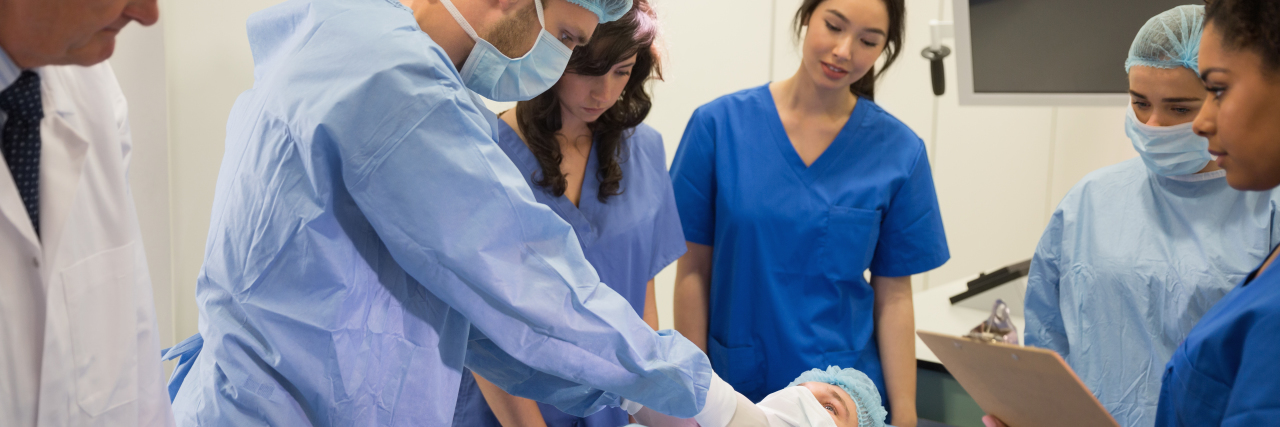Growing up with cerebral palsy, I went to the doctor more times than I can count. Each time I visited my orthopedic surgeon at a teaching hospital, the med students would come in, do their thing, go out to talk to the real doctor, and then they’d all come back in and tell me what they thought. When I graduated high school, my orthopedic surgeon told me I only needed to come back if I was having troubles since I stopped growing after puberty. I thought the days of feeling like a teaching object were over.
Like many people I’ve heard of with cerebral palsy, even though my brain damage has stayed the same since I was a kid, the overall toll my body has taken from the years of abuse it has endured due to its inability to move efficiently has started to catch up to me. At 28, I live off Tylenol and a medication used for nerve pain to manage my daily pain. I don’t want to do that anymore because I know I’m already on enough medications for my mental health to damage my liver if this continues long-term. I want to treat the root cause of the problem.
That takes me to the doctor’s appointment I had this week where I was transported back to being a child. The medical students came in and did their thing before the doctor arrived. I have to say that the outcome of the appointment was what I was hoping for – Botox injections to manage my spasticity — but looking back on it, I’m left with a bad taste in my mouth for how I was treated during the appointment.
Because I completed most of physical therapy school, I understood a lot of what the medical students were talking about and I could appreciate their excitement when working with a patient presenting with real pathology. We were all joking around in this appointment, but I know that had these medical students acted like this when I was a child, I’d have been devastated.
There were two medical students working on my case, a first-year and a fourth-year. The first-year medical student just observed while the fourth-year student did the exam. Since this was my first ever appointment with this doctor, they had to evaluate everything. This is where things got awkward and uncomfortable because the fourth-year medical student would get excited assessing my spasticity and feeling clonus. It seemed like he didn’t even try to hide his excitement.
Don’t get me wrong, I love helping students learn. I have been a practice patient for a local physical therapy program many times and loved it. But this time was different. I was seeking help and the medical students were excited to assess the aspects of how my body functions that genuinely interfere with how I want to live my life. As a practice patient, I chose to be placed in a situation where students would learn from how my body works, but at this new doctor, I didn’t.
It feels like to the medical student, those symptoms of spasticity and clonus are just some cool science experiment and I was a lab specimen. He treated me like a project. To me, these symptoms represent mental and emotional pain as well as a lifetime of disability and limitations.
With my history of being in PT school, I understand how the medical students acted, but if I were still a kid, I’d have been devastated.
I hope that in the future these (and all) medical students and doctors work to mask their excitement and act professionally so patients don’t get treated like pathological objects.
Getty image by Wavebreak Media.

